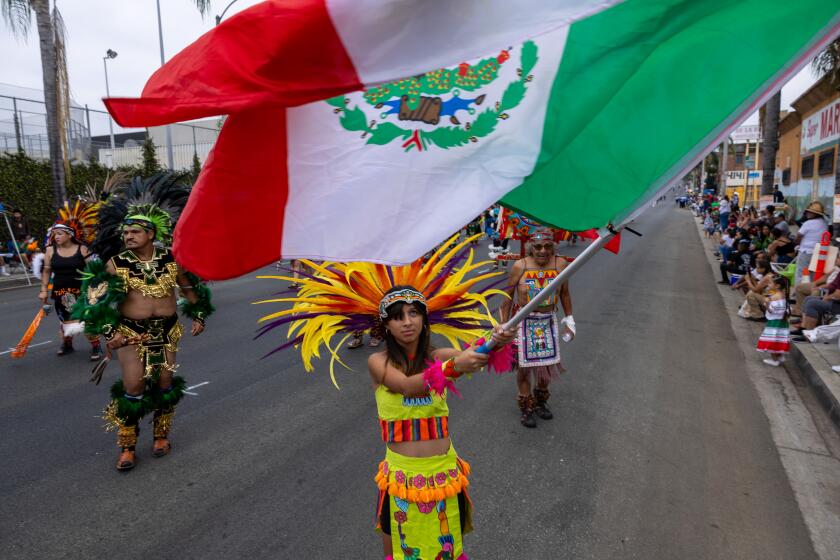Afghan Families Divided, Villages Uprooted
Mohammad Nooruddin searched for weeks to track down the family he left a decade ago to join the Islamic resistance. But he didn’t get the welcome he expected.
When Nooruddin arrived at the family home in western Kabul, his sister Bibi attacked him with a broomstick.
“She called me a killer and she started beating me,” he said. “She told me to leave and never to come back to Kabul.”
Three years ago, a rocket fired by moujahedeen guerrillas from the outskirts of Kabul slammed through the roof of her house, killing Bibi’s 13-year-old daughter. Bibi blamed her brother.
Nooruddin, 34, abandoned university studies and his plans to be a doctor following the Communist takeover 14 years ago. He joined the moujahedeen believing that Afghanistan should have an Islamic society.
The war waged by the moujahedee n, or Islamic holy warriors, ended Soviet-domination of Afghanistan, and then Communist rule. But it also divided families and turned upside down a poor but proud society anchored in centuries-old tribal traditions.
Months after their battered country embarked on an uncharted course toward Islamic rule, Afghanistan’s new leaders have yet to show themselves able to stop an aimless drift toward anarchy.
Many people want to leave, including many whose talents are needed for the country’s rebuilding.
Young, educated women propose marriage to Western men visiting the Afghan capital, promising divorce as soon as they are safely out of the country.
Doctors, lawyers and other professionals who refused to leave the country during the war are now making plans to go abroad. Even those who fought to bring an Islamic government to Afghanistan aren’t sure about the future.
Ashmat, 30, spent 12 years in Kabul’s notorious Pul-e-Charki prison, enduring frequent beatings, because he supported the rebels.
Released just before the collapse of President Najibullah’s Communist regime in April, he’s now so disillusioned by the persistent bloodshed that he wants to get out and head for Czechoslovakia.
“I want to go to Prague with my brother,” Ashmat said. “Afghanistan does not look good. Afghanistan is not safe.”
The Defense Ministry estimates that 70,000 armed, undisciplined rebels are roaming the capital’s dusty, rutted streets.
A joint security force formed from all rebel groups is trying without success to disarm the fighters, who are bent on enforcing their own arbitrary laws in a city with no central authority.
Many rebel commanders are ignoring the orders to lay down their weapons for fear of being left vulnerable to attacks by rival groups. Firefights can break out without warning.
“We didn’t fight for all these years to see the government taken over by a bunch of Wahabbis,” Sayed Humayun, a commander in the pro-Iranian Hezb-i-Wahadat faction, said after his fighters seized control of the Interior Ministry recently, ousting a group aligned with wealthy Arab extremists.
Afghans are increasingly critical of their new leaders, seeing many as discredited, corrupt politicians with little popular support, more interested in hanging onto power rather than improving daily life.
“What gives these guys the right to think they know what’s best for Afghanistan,” said Nawab Alam Khan, who spent most of the war fighting with current Defense Minister Ahmed Shah Masoud in northeastern Afghanistan.
“They stayed in Pakistan in their big, comfortable houses, driving their big cars and traveling around the world in the name of jihad (holy war). They never fired a gun or had to watch their brothers die. The only thing they did was to get rich.”
Khan, 29, poured out his bitterness at a nighttime checkpoint in Kabul.
But many former rebel commanders say people are expecting miracles and should take a more realistic view of the possibilities.
“The war destroyed the old system and left nothing in its place. There is no blueprint, and you can’t use force because that will only lead to more fighting,” said Mohammed Eshaq, a former commander for one of the Pakistan-based groups, Jamaat-i-Islami.
Eshaq now edits the monthly English-language newspaper, Afghan News.
The war brought an end to Communist rule, but the ethnic and religious discord it sowed has stymied the creation of a stable government.
More to Read
Sign up for Essential California
The most important California stories and recommendations in your inbox every morning.
You may occasionally receive promotional content from the Los Angeles Times.










